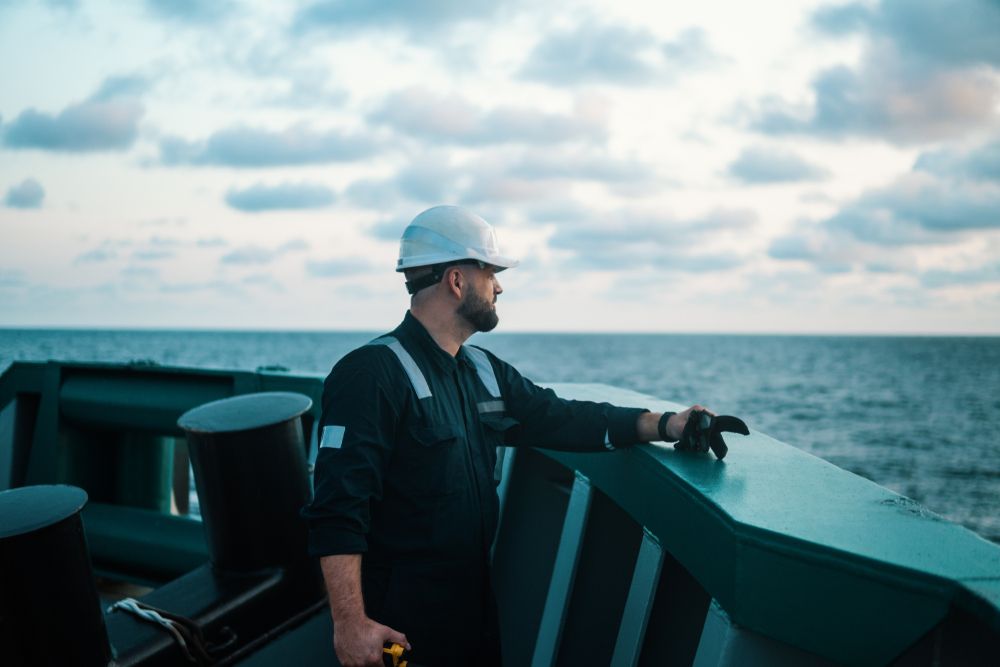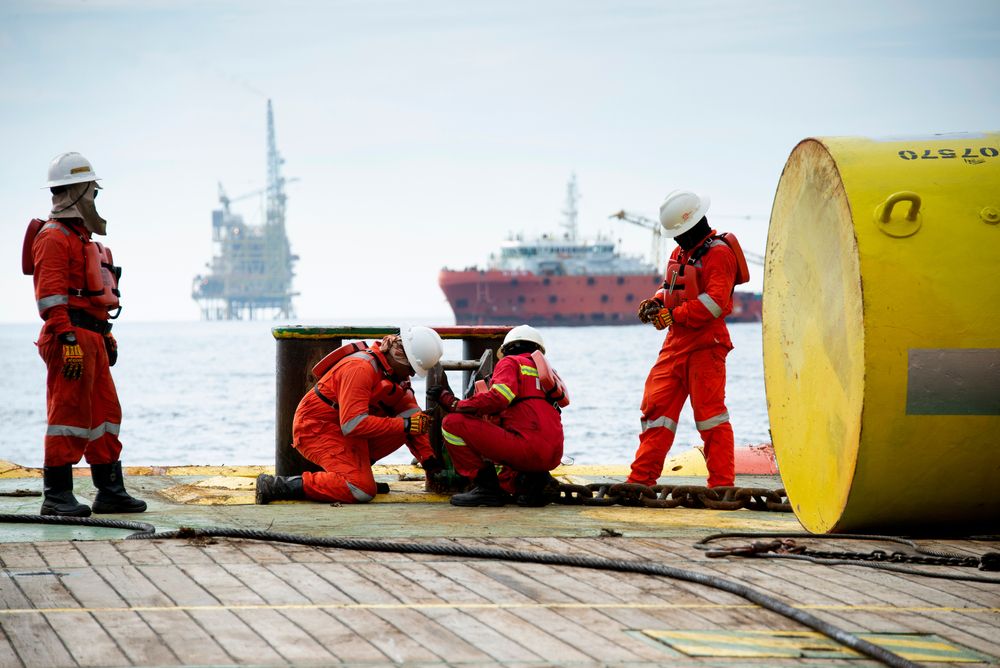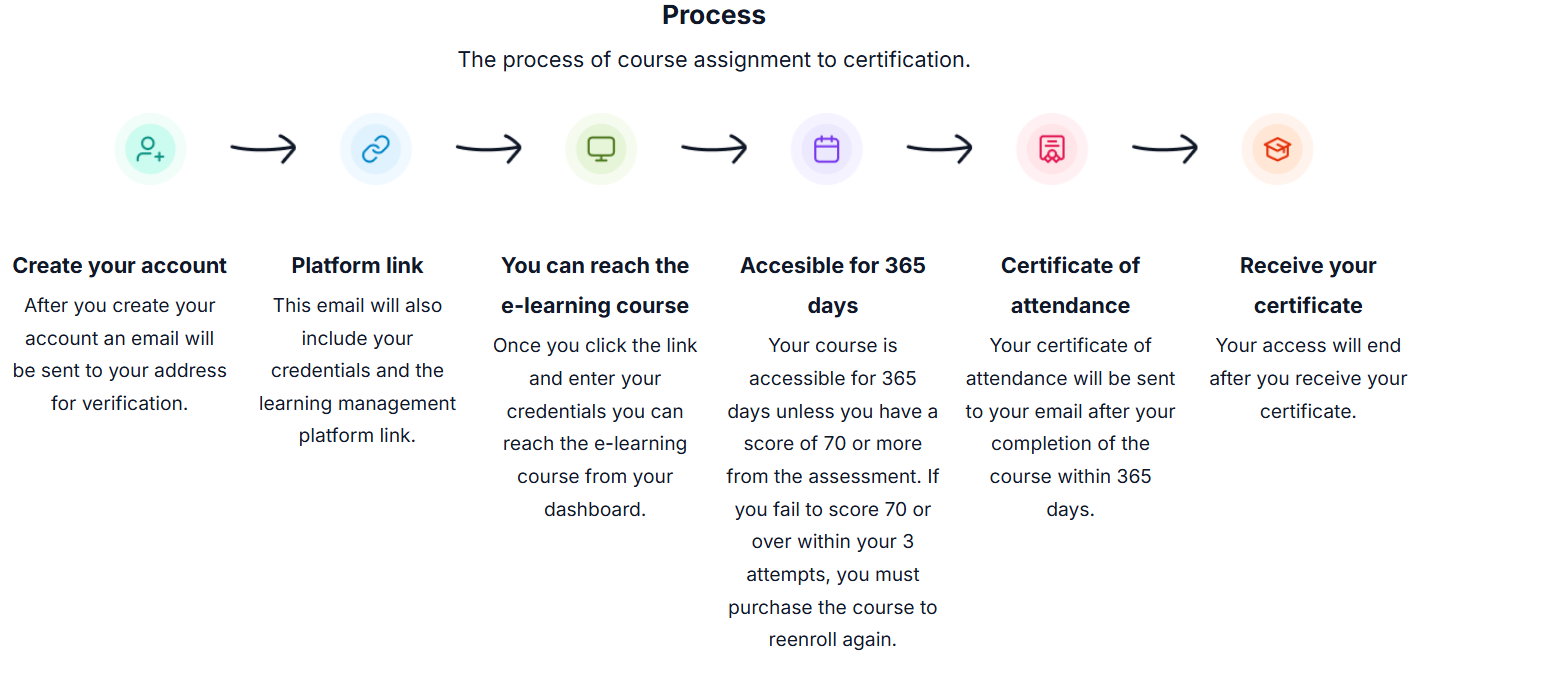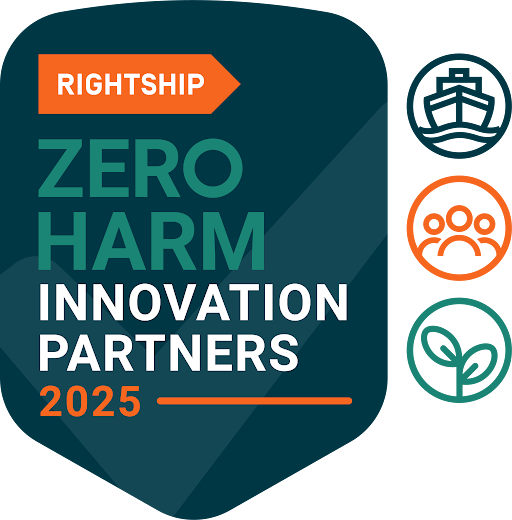How to Get Maritime Certification: Your Complete Guide to Navigating the Process with Maritime Trainer
Introduction
In the dynamic and highly regulated world of maritime operations, securing the right certifications is not merely an added advantage—it’s an absolute necessity. Maritime certifications serve as the cornerstone of professional credibility, ensuring that you meet the stringent safety and compliance standards demanded by the industry. Beyond proving your skills, these credentials are essential in demonstrating your commitment to professional growth, operational excellence, and the well-being of all crew members.
Section 1: Understanding the Importance of Maritime Certification
Why Certification Matters

In the maritime industry, certification isn’t just a formal requirement—it’s a foundation of trust, safety, and professionalism. Becoming certified means that you’ve demonstrated the knowledge, skill, and judgment required to safely navigate complex maritime environments. This assurance of competency carries weight both at sea and onshore.
- Compliance with International Standards and Regulations: Maritime certifications ensure you meet globally recognized protocols established by bodies like the International Maritime Organization (IMO). Whether adhering to the STCW standards or complying with environmental regulations, certification affirms that your training aligns with international best practices. Ships and shipping companies risk severe penalties, restricted operations, and damaged reputations if they rely on uncertified crew members, making certification a strategic imperative.
- Enhanced Employment Prospects and Career Advancement Opportunities: Within the maritime sector, certifications often serve as the key to unlocking new roles and responsibilities. Employers prioritize candidates who have proven their capabilities through structured training and assessments. Gaining certifications can also help you progress from entry-level to senior ranks, leading to better pay, more challenging work, and a stronger professional identity.
- Demonstrating Professional Competency and Safety Awareness: Maritime operations inherently involve navigating unpredictable ocean conditions, complex machinery, and strict safety protocols. Certified professionals signal to employers, colleagues, and regulatory bodies that they can be relied upon in high-stakes situations. In an industry where human error can lead to catastrophic consequences, these qualifications underscore a commitment to safety, operational integrity, and responsible decision-making.
Types of Certifications
The scope of maritime certifications is broad, reflecting the sector’s diversity. Whether pursuing a foundational credential or a highly specialized qualification, there’s a certification pathway designed to match your career goals.
- Common Certifications: These foundational credentials—such as STCW Basic Safety Training, Advanced Firefighting, and Medical First Aid—equip you with essential knowledge and emergency response techniques. They form the bedrock of maritime proficiency, ensuring you’re prepared to confidently handle routine operations and unexpected incidents.
- Role-Specific Credentials: As you progress, you may pursue more specialized certificates tailored to your responsibilities. Deck officers, for instance, need qualifications in navigation and watchkeeping, while marine engineers require certifications that prove their expertise in maintaining propulsion systems and auxiliary machinery. On the other hand, safety officers need to demonstrate a deep understanding of hazard management and compliance protocols.
- Specialized Certifications for Niche Maritime Sectors: The maritime world extends beyond conventional cargo vessels and passenger ships. Niche sectors—such as offshore installations, LNG carriers, research vessels, and polar operations—demand highly specialized skill sets and advanced training. Certifications in these areas delve deeper into sector-specific challenges, technologies, and procedures, offering professionals the chance to become experts in their chosen domains.
In essence, earning and maintaining maritime certifications is a personal investment in your career and a strategic move for employers and shipping companies. The maritime industry’s commitment to safety, environmental stewardship, and operational excellence relies on certified professionals who consistently uphold the highest standards. By aligning your qualifications with recognized benchmarks, you set yourself on a path toward sustained professional growth and long-term success at sea.
Section 2: The Traditional Certification Journey vs. Modern Solutions

For decades, maritime professionals relied heavily on conventional routes to earn their certifications—pathways that often proved time-consuming, costly, and inconvenient. As the industry evolves and embraces digital innovations, a new generation of certification solutions is bridging these gaps. By comparing the traditional journey with modern, tech-driven methods, it’s clear how today’s professionals can benefit from enhanced flexibility, accessibility, and efficiency.
Traditional Challenges
- Limited Availability of In-Person Courses: Traditional certification programs frequently required candidates to travel to onshore training centers or maritime academies. With limited availability, you may have been competing for a spot or waiting months before the next session opened up, ultimately delaying your professional advancement.
- High Costs and Travel Constraints: Beyond tuition and material fees, lodging, transportation, and time away from work could accumulate quickly. These financial and logistical burdens often posed hurdles to those eager to enhance their skills but struggled to justify the expense and disruption to their daily lives.
- Lengthy Turnaround Times for Receiving Certifications: Even after completing a course and passing examinations, receiving official documentation was often lengthy. Processing paperwork, verifying exam results, and mailing credentials took time—extending the period before a professional could officially present their hard-earned qualifications to potential employers.
The Digital Advantage
The maritime certification landscape has transformed with the advent of e-learning, interactive simulations, and sophisticated learning management systems. These modern solutions address the shortcomings of traditional methods, making certification more attainable than ever.
- 24/7 Access to Online Courses: With digital platforms, the classroom travels with you. You can access course materials anytime, whether onshore, onboard a vessel, or working on a remote offshore installation. This level of convenience ensures that geographic limitations and rigid timetables no longer stand in your way.
- Self-Paced Learning to Accommodate Busy Schedules: The maritime profession is dynamic, and your availability can shift from one day to the next. Online training solutions let you learn at a pace that fits your schedule—revisiting challenging modules, reviewing complex concepts, and moving quickly through familiar content. This flexibility ultimately empowers you to focus on mastery rather than simply completing a checklist.
- Interactive Content and Simulations for Realistic Skill-Building: Unlike traditional lecture-based classes, modern e-learning solutions incorporate interactive quizzes, realistic simulations, and scenario-based learning. These tools help bridge the gap between theory and practice, enabling you to develop hands-on competencies in a controlled, virtual environment. By doing so, you can gain confidence and experience before applying these skills to real-life operations at sea.
In short, the shift from traditional, classroom-bound certification methods to digital, on-demand solutions represents a pivotal change in the maritime sector. The new approach optimizes time, reduces costs, and enhances the overall learning experience. By embracing this evolution, you can propel your maritime career forward more efficiently, ensuring that your qualifications remain competitive, relevant, and seamlessly aligned with industry standards.
Section 3: Introducing Maritime Trainer’s End-to-End Certification Process
One key challenge in achieving maritime certification is piecing together the right training resources and complying with various regulatory requirements—often spread across different platforms, locations, or time zones. Maritime Trainer simplifies and streamlines this journey. By consolidating everything into a single, user-friendly online environment, Maritime Trainer ensures that maritime professionals of all backgrounds have a clear, convenient, and effective path toward earning and maintaining their certifications.

Below is a detailed, step-by-step overview of how Maritime Trainer’s comprehensive platform guides you from initial sign-up to final certification issuance, making the process transparent, accessible, and aligned with the highest industry standards.
Step-by-Step Guide to Certification Through Maritime Trainer

Step 1: Create Your Account
- Easy Registration: Begin by signing up on the Maritime Trainer website. The process is designed to be simple, requiring just basic personal and professional information.
- Secure Credentials: Once registered, the platform will prompt you to verify your email. This step ensures your account's integrity and security, protecting your personal data and course progress.
- Personalized Dashboard: After verification, you’ll gain access to a personalized dashboard to view available courses, track your progress, and manage all aspects of your certification journey.
Step 2: Access the Platform Link
- Seamless Onboarding: Upon successful registration, you’ll receive an email containing login credentials and a direct link to the Maritime Trainer platform.
- Anytime, Anywhere Access: Whether onshore with a stable internet connection or at sea with limited bandwidth, Maritime Trainer’s mobile-friendly interface allows you to log in and continue learning from virtually any location. This ensures that your certification path never pauses due to travel or work commitments.
Step 3: Begin the E-Learning Course
- Intuitive Navigation: A user-friendly interface helps you quickly find the necessary courses. With logical categorization and a clean layout, you can locate your required training modules or discover additional electives to support broader career goals.
- Comprehensive Course Catalog: With over 240+ courses across more than 20 distinct categories, Maritime Trainer covers all core maritime competencies—ranging from basic safety and compliance modules to specialized programs in engineering, navigation, environmental protection, and advanced emergency response.
- Industry-Aligned Curriculum: Each course is developed and curated by maritime professionals, ensuring that the material remains up-to-date, aligned with industry regulations, and enriched with real-world scenarios. Interactive quizzes, multimedia content, and case studies immerse you in practical learning experiences that translate directly into onboard proficiency.
Step 4: Course Accessibility for 365 Days
- Flexible Learning Schedule: Unlike traditional classroom-based courses with fixed timelines, Maritime Trainer grants you a full year of access to each enrolled course. This long access window accommodates busy schedules and variable contract cycles at sea, enabling you to study at your own pace without sacrificing professional obligations.
- Multiple Assessment Attempts: To ensure thorough comprehension, the Maritime Trainer provides up to three assessment attempts per course. This approach encourages mastery over memorization, letting you revisit challenging topics and improve your score until you confidently meet or exceed the required 70% passing threshold.
- Re-Enrollment Options: In the rare event you don’t pass within the allotted attempts, the platform’s re-enrollment feature ensures you’re never stuck. Simply re-enroll and delve deeper into the subject matter, reinforcing your knowledge and achieving the competency level needed for certification.
Step 5: Certificate of Attendance
- Immediate Acknowledgment: A Certificate of Attendance is automatically generated as soon as you complete a course’s modules and pass the associated assessments. This swift recognition of your effort and achievement proves your newly acquired knowledge and skills.
- Worldwide Acceptance: Maritime Trainer’s Certificates of Attendance are widely recognized by industry stakeholders, giving you confidence that your hard work meets international standards. Shipping companies, port authorities, and crewing agencies acknowledge these credentials, opening doors to new employment opportunities and greater responsibilities on board.
Step 6: Receive Your Final Certificate
- Rigorous Verification Process: After completing all coursework and assessments, the Maritime Trainer conducts a final verification to ensure that every element of the certification process adheres to proper regulatory guidelines and internal quality controls. This verification guarantees the legitimacy and integrity of your credentials.
- Official Issuance and Credibility: Once the verification is confirmed, your official maritime certification is issued and ready for submission to employers, regulators, and other maritime authorities.
- Focused Learning Window: After receiving your final certificate, your course access closes, helping maintain a focused and structured learning environment. This approach ensures that you stay on track, complete your training within a reasonable timeframe, and maintain an up-to-date skill set aligned with the latest standards.
The Maritime Trainer Advantage: By following this clear, step-by-step pathway, you’re never left guessing about your next move or unsure how close you are to earning your credentials. Every stage—from account creation to final issuance—runs through a secure, integrated platform designed to fit the realities of maritime life. This end-to-end process minimizes administrative burdens, reduces wait times, and delivers quality, compliant, comprehensive, but also convenient, and career-focused training.
Section 4: Standout Features of Maritime Trainer
Choosing the right platform for your maritime training and certification is more than a matter of convenience—ensuring that every resource you invest your time and effort into is of the highest quality, relevance, and utility. Maritime Trainer’s blend of cutting-edge technology, expert-curated content, and user-focused design sets it apart in today’s competitive maritime education market. Below are the key features that make Maritime Trainer an exceptional choice for seafarers, maritime professionals, and industry stakeholders.
Global Accessibility
1. Access from Anywhere:
Comprehensive Training Materials
1. High-Quality, Maritime-Specific Resources:
User-Friendly Learning Management System (LMS)
1. Personalized Dashboards and Tracking:
Industry-Recognized Credentials & Career Support
1. Certifications Aligned with Global Maritime Standards:
By combining accessible technology with rigorous content and robust learning tools, Maritime Trainer empowers professionals to attain and maintain industry-ready certifications. From interactive simulations and global accessibility to recognized credentials and ongoing professional development, every feature is designed to help you confidently navigate your maritime career and excel in an ever-evolving, highly regulated environment.
Section 5: Ensuring Success on Your Certification Journey

Earning a maritime certification is more than just passing exams—it’s about cultivating a mindset of continuous improvement and staying engaged with the larger maritime community. Even the most comprehensive training solution benefits from a structured study approach, strategic use of platform tools, and a commitment to ongoing professional development. Below are practical tips and resources to help you excel throughout your certification journey and beyond.
Study Tips and Best Practices
1. Plan a Study Schedule:
Networking and Community
1. Engage with Instructors and Fellow Learners:
Staying Compliant and Up-to-Date
1. Periodic Renewal and Refresher Courses:
In essence, success in maritime certification isn’t just about earning a credential—it’s about developing a lifelong learning habit that keeps you at the forefront of your profession. By implementing strategic study habits, engaging with a supportive community, and committing to regular skill enhancement, you position yourself to excel in your current role and navigate the evolving seascape of the maritime industry with confidence and competency.
Section 6: Success Stories and Testimonials
Real-life success stories and authentic endorsements confirm a training platform’s value. Hearing how others have navigated their certification process—and the tangible career benefits they’ve reaped—can give you a clearer picture of what’s possible. Maritime Trainer’s proven track record of helping maritime professionals accelerate their career growth, enhance their competencies, and gain industry recognition is reflected in the experiences of its learners and the feedback from employers who trust these credentials.
Real-World Examples
1. Career Advancement Through Certification:
Feedback from Alumni and Employers
1. User Satisfaction and Improved Competency:
By showcasing stories of professionals who have climbed the ranks, improved their onboard performance, or secured positions in highly competitive maritime sectors, Maritime Trainer provides a living testament to its effectiveness. Combined with endorsements from employers who trust and respect these credentials, these testimonials form a powerful narrative: maritime certification through Maritime Trainer doesn’t just check a regulatory box—it drives meaningful, measurable career success.
Conclusion
The path to maritime certification has undergone a remarkable transformation, evolving from cumbersome, time-consuming processes into a streamlined, digitized journey. Throughout this guide, we’ve highlighted how Maritime Trainer stands out by offering a comprehensive catalog of industry-aligned courses, user-friendly technology, and rigorous assessments that ensure you’re fully prepared for the challenges at sea. Whether you’re a seasoned officer looking to update critical credentials or a newcomer eager to establish your professional foundation, Maritime Trainer’s flexible and accessible platform simplifies the learning curve and enhances the learning experience.

Approved & Certified by Bureau Veritas

We are proud to be member of


